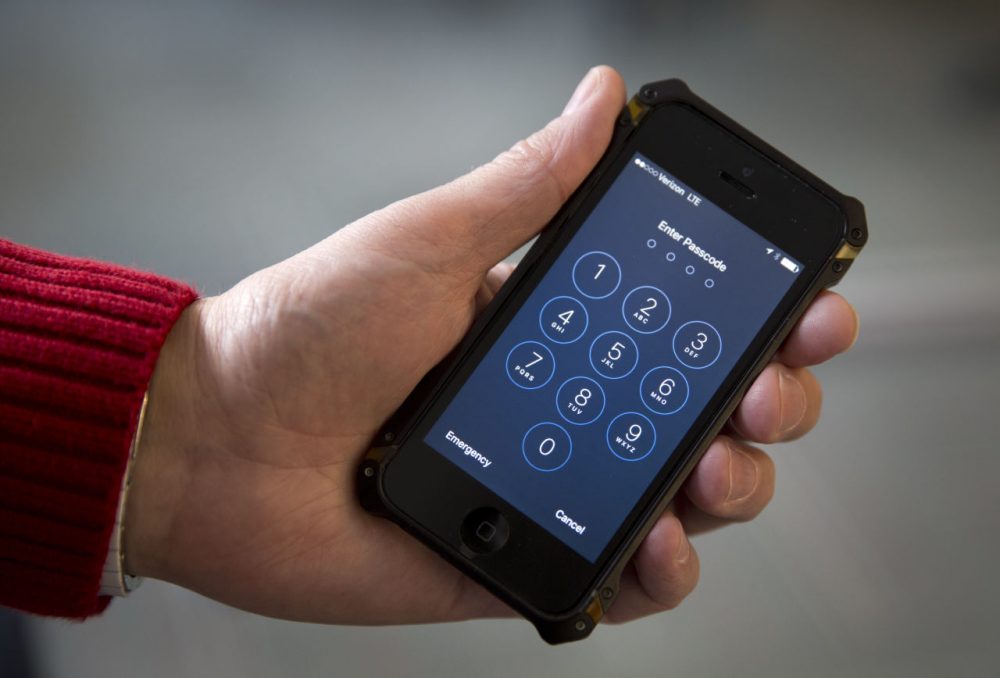Advertisement
Balancing Privacy And Security In Apple, FBI Fight Over Encryption
Resume
The FBI wants Apple to help unlock the iPhone of San Bernardino terrorist Syed Farook. A federal judge has ordered Apple to comply.
But, Apple says it will not comply. Now, we have the world's most famous tech company pushing back against the government as it tries to investigate the worst terrorist attack on U.S. soil since 9/11. Once again, we're at that complex nexus between privacy and security.
Guests
Hiawatha Bray, technology writer for the business section of The Boston Globe. He tweets @GlobeTechLab.
Jonathan Zittrain, George Bemis professor of international law at Harvard Law School and the Harvard Kennedy School of Government, professor of computer science at the Harvard School of Engineering and Applied Sciences, vice dean for library and information resources at the Harvard Law School Library, and co-founder of the Berkman Center for Internet & Society. He tweets @zittrain.
More
The Boston Globe: Why Apple’s Tim Cook Shouldn’t Crack The iPhone For The FBI
- "Does anybody believe that this tool will be used just this once? The USA Patriot Act, created to fight terrorism, was deployed against all manner of common criminals. Create an iPhone hacking tool, and every police force in America will want a copy. Why would any judge refuse?"
CNBC: Why Apple Should Comply With The FBI: Cybersecurity Expert
- "This case is not about a backdoor, however. Instead it is about access to data on an existing phone...While the court order provides the legal authority to retrieve the data, the court cannot order Apple to do something that is not technically possible. That is why the demands in the order are different, to provide assistance to bypass the separate auto-erase function and delays between pass-code guesses. This assistance would enable the government to 'brute-force' the login screen in approximately 10,000 attempts."
Apple: A Message to Our Customers
- "We can find no precedent for an American company being forced to expose its customers to a greater risk of attack. For years, cryptologists and national security experts have been warning against weakening encryption. Doing so would hurt only the well-meaning and law-abiding citizens who rely on companies like Apple to protect their data. Criminals and bad actors will still encrypt, using tools that are readily available to them."
WBUR: Apple, The FBI And iPhone Encryption: A Look At What's At Stake
- "The debate has taken various forms — fighting over the FBI's requests for backdoors into Apple encryption, sparring with the DEA over encrypted iMessages, arguing over the feasibility of unlocking iPhones — but the general disagreement has been the same. Federal investigators and prosecutors want access to more data, and Apple maintains that it's essential to keep encryption unbreakable."
Radio Boston: Hiawatha Bray On Phone Encryption And The Fight Against Terrorism
- "Law enforcement officials are calling on tech companies like Apple and Google to loosen the encryption standards on their phones to make it easier to intercept potential terrorist communications. But is weakening encryption worth it, or even effective?"
This segment aired on February 18, 2016.